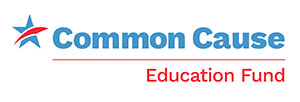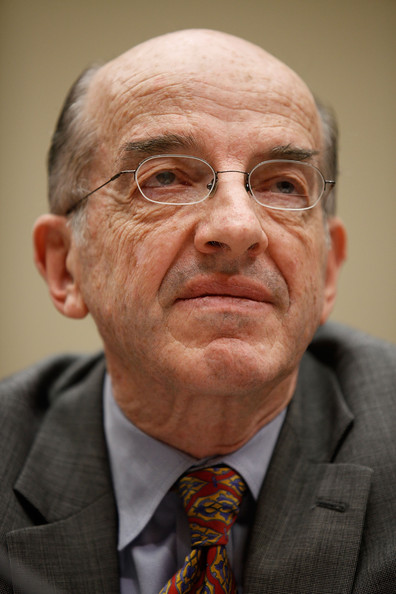"What We've Got Here Is Failure To Communicate"

Thursday, September 24, 2020
Digital Beat
"What We've Got Here Is Failure To Communicate"

That iconic line from "Cool Hand Luke" comes to mind as we approach the final month of perhaps the strangest, most off-the-rails, and yet critically important presidential campaigns in the nation's history. Oh, we've had some real doozies before, with actual winners being declared losers, back-room deals and shenanigans undermining the people's will, and millions of eligible voters denied the ability to cast a ballot and have it count.
One might be excused for thinking that by now, more than 200 years after the first disputed presidential election, our forebears or ourselves would have stepped up to the issue and put in place the mechanics necessary to allow a democratic nation to hold a democratic election. Yet here we are, in one of the worst economic recessions in history and amidst a pandemic that has already cost the country two hundred thousand lives, and we still don't know how to count the votes, who should be "allowed" to vote (as if anyone's permission needs to be granted!), how to set up credible polling places, whether those standing in lines for hours in deliberately scarce polling sites should be allowed to cast ballots, what to do when those in power use the agencies of government to subvert the process, and debating whether a president who loses at the polls can nevertheless hold onto power by threat or by coup. America's election process is subverting America's democracy.
This should be a front-and-center issue as we prepare for November. It is a pandemic as threatening to our political lives as COVID-19 is to our physical lives. Just as we watch the coronavirus spread, so too do we watch the electoral virus spread. We see whole groups of citizens disenfranchised in state after state, polling places shut down, postal ballot processes strangled, and courts in many states actually approving this woeful subversion of voting rights.
The story is occasionally told in bits and pieces, but it receives nowhere near the attention it merits -- indeed, the attention it should command. There are reasons for this shortfall. One of them, and I submit the most important one, is mainstream media's failure to highlight the issue. Maybe that's not surprising when we realize that half of our country's newsroom jobs have disappeared just since the year 2000. That means fewer journalists covering the voting rights beat, digging for facts, reporting their findings, and informing us all about what's undermining the credibility of our democracy.
The recession is surely exacerbating the journalistic job hemorrhage, but the erosion predates it by years. We have been through two decades and more of rampant media consolidation, the demise of local community newspapers and broadcast stations, special interest money electing officials at every level who are all too happy to limit democratic voting, and legislative and regulatory agencies at both the federal and state levels stripped of their authority to protect the public interest and advance the common good.
Don't misunderstand. There are still folks in the media, mostly at the independent and community level, who understand the crisis and work to tell the sordid tale. But they are a minority in a corporatized media industry that is more interested in entertaining than informing. America's media-industrial complex finds more profit in fixating on the campaign horse race than on covering serious issues. It would rather reveal with trumpets blaring its latest political polls than explain in detail why many polling places no longer exist. The upcoming presidential debates will highlight "gotcha" questions at the expense of important substantive discussions. It is reality show entertainment wherein politics is reduced to a spectator sport -- at a time when real spectator sports like football, baseball, and basketball are sidelined by COVID, making the campaign the primary vehicle to sell ads.
It is late in the campaign to fix everything that has gone wrong. I expect no miracles -- not after decades of wrong-headed policies and now the rise of all the misinformation and disinformation that social media and online platforms are spreading through the populace. The campaign wasteland just keeps on growing.
But how about some modicum of media effort between now and November 3 to start a conversation, to demand of candidates where they stand on important but largely ignored issues, and, yes, to ask them how they view media's obligations in a democratic society? How about media cutting back on their mind-numbing number of commercial ads and instead running public interest spots to educate citizens on issues like mail-in voting? I get furious every evening watching the network news shows run one "news" story between half a dozen ads. Couldn't they forgo just one or two of those ads in favor of more (and I mean many more) public service announcements that would advance rather than undermine the electoral process?
If we fail to get candidates committed on solutions to issues now, and just settle for more anodyne bromides about their "concern," where will we find the post-election leverage to make them actually take on the hard stuff?
Take broadband, which the pandemic has taught us is absolutely essential for doing our jobs, educating our kids, and caring for our health. We have never, under any administration, had a national mission to get high-speed, affordable broadband deployed and adopted in every household and business across the land. Individual agencies work at it, but no individual agency can get this job done by itself. We have lacked a mission and a plan to connect America for a quarter of a century, while much of the rest of the world moves ahead. The private sector is not going to get this done by itself, nor can government. We need meaningful working partnerships among the private sector, federal, state, and local governments, cooperatives, and regional entities. What is required is leadership from the top and coordination across the board. It must start with a president who presents the vision and develops the mission. Then it requires funding for this essential infrastructure that, to be effective, must be universal. It also requires realizing that this is how most of the country's earlier vital infrastructures were built -- from the roads, bridges, and canals of early days through the railroads, highways, and electrification projects of more recent years. We are today paying a disastrous and totally unnecessary price for the short-sightedness of recent years. The longer we delay, the more we will hurt.
The pandemic didn't create most of our nation's current challenges; it accelerated them. I hope it is also bringing home how deep a hole we have dug ourselves into -- or, more accurately, have allowed others to dig us into. "The ox is in the ditch," my late friend Fritz Hollings used to say. It's up to us, together, to pull it out. That means taking on those who deny millions the right to vote; ending unlimited campaign spending that ensures power to the few; and, at long last, finally facing up to the racial injustice that has consigned millions of citizens to lives they did not create and should not be enduring.
We have a few weeks left to change the tone of how media cover this election and to bring meaningful attention to critical issues that have gone largely untended. Media have a solemn obligation to do a better job of informing us. But you and I have a solemn obligation to demand more from the media, more from our candidates, and, yes, more from ourselves. Remember this: decisions without you are very often decisions against you. There will be many more adverse decisions unless we demand more and do more. Let's use these few remaining weeks to reenergize our endangered democracy. And let no one of us ignore the first obligation of responsible citizenship. To vote.
Michael Copps served as a commissioner on the Federal Communications Commission from May 2001 to December 2011 and was the FCC's Acting Chairman from January to June 2009. His years at the Commission have been highlighted by his strong defense of "the public interest"; outreach to what he calls "non-traditional stakeholders" in the decisions of the FCC, particularly minorities, Native Americans and the various disabilities communities; and actions to stem the tide of what he regards as excessive consolidation in the nation's media and telecommunications industries. In 2012, former Commissioner Copps joined Common Cause to lead its Media and Democracy Reform Initiative. Common Cause is a nonpartisan, nonprofit advocacy organization founded in 1970 by John Gardner as a vehicle for citizens to make their voices heard in the political process and to hold their elected leaders accountable to the public interest. Learn more about Commissioner Copps in The Media Democracy Agenda: The Strategy and Legacy of FCC Commissioner Michael J. Copps
The Benton Institute for Broadband & Society is a non-profit organization dedicated to ensuring that all people in the U.S. have access to competitive, High-Performance Broadband regardless of where they live or who they are. We believe communication policy - rooted in the values of access, equity, and diversity - has the power to deliver new opportunities and strengthen communities.
© Benton Institute for Broadband & Society 2020. Redistribution of this email publication - both internally and externally - is encouraged if it includes this copyright statement.
For subscribe/unsubscribe info, please email headlinesATbentonDOTorg






